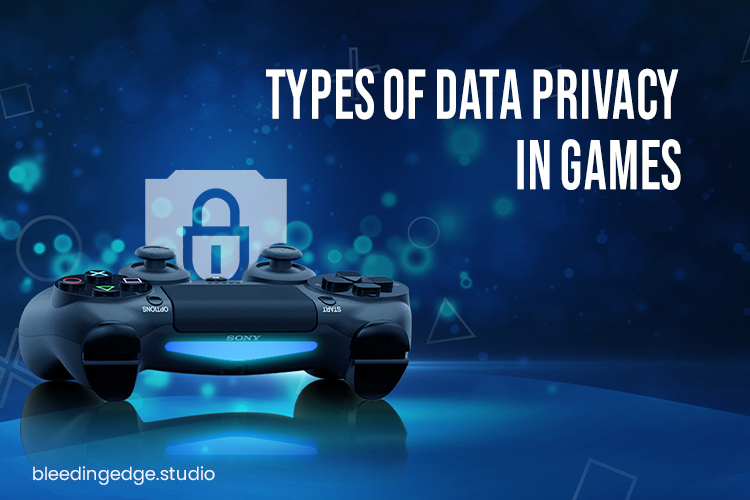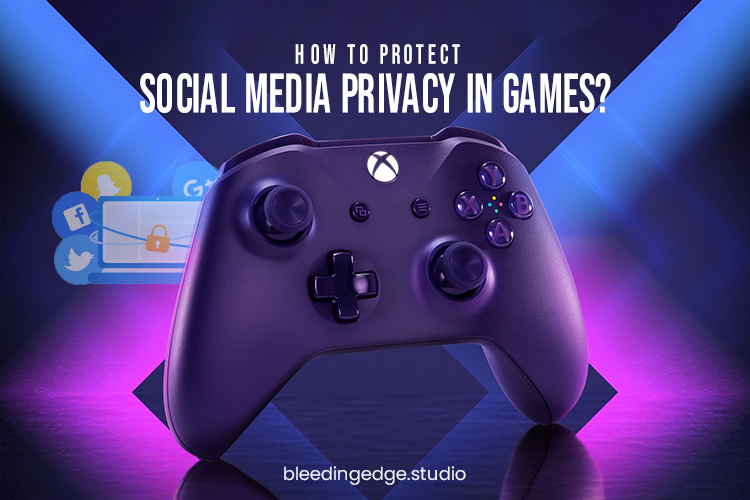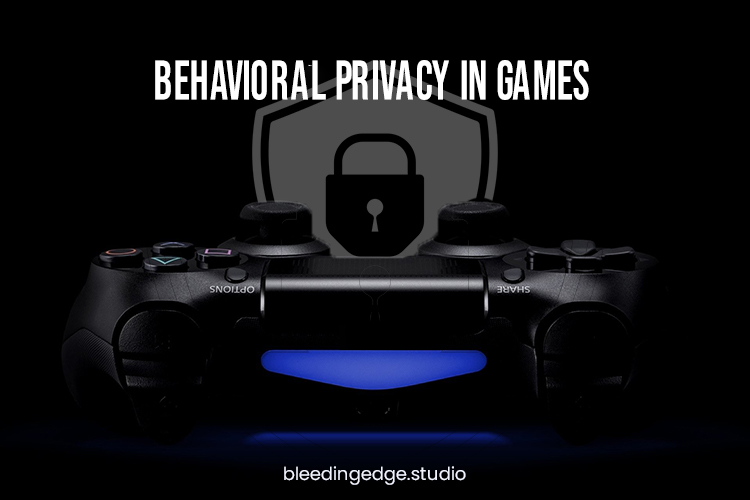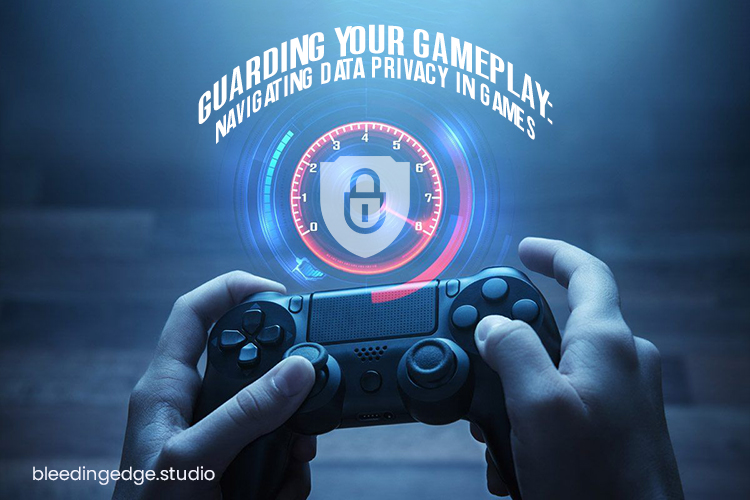Guarding Your Gameplay: Navigating Data Privacy in Games
Data is any information, facts, or statistics a computer can record, store, and process. It can take many forms, including text, images, audio, video, and numerical values. Data can be structured or unstructured and collected from various sources such as sensors, surveys, databases, and social media platforms. To be useful, data must be organized, analyzed, and interpreted to provide insights and enable decision-making.
Privacy refers to an individual’s right to control access to personal information or personal life. Individuals can keep certain information confidential and restrict who can access or use it. Privacy can be divided into several categories, such as informational privacy, which relates to the collection and use of personal data, and physical privacy, which relates to personal space and control over one’s body. Privacy protects individual autonomy, dignity, and personal safety and promotes trust and security in social, commercial, and political interactions.
Data privacy in games refers to protecting personal data collected and processed by video games and gaming companies. Games may collect personal data, such as a player’s name, email address, age, location, and payment information. In addition, games may also collect data on a player’s gameplay behavior, such as their progress, achievements, and in-game purchases.
Gaming companies must implement appropriate data privacy measures to protect this information from unauthorized access, use, or disclosure. This includes implementing secure data storage and processing methods, providing clear and concise privacy policies, obtaining explicit consent from players for data collection and use, and enabling players to control their data through data deletion and account deactivation. By safeguarding personal data in games, players can enjoy a safe and secure gaming experience, while gaming companies can comply with legal and ethical obligations related to data privacy.
Types of Data Privacy in Games:

Gaming companies must consider several types of data privacy in games to protect players’ personal information. Here are some examples:
- Personal Identifiable Information (PII) Privacy: This type of data privacy refers to the protection of personal information that can be used to identify a player, such as their name, email address, physical address, phone number, and date of birth.
- Gameplay Privacy: This type of data privacy protects player gameplay data, such as progress, achievements, in-game purchases, and other related information.
- Payment Privacy: This type of data privacy protects payment information, such as credit card details, bank account information, and other sensitive payment data.
- Social Media Privacy: This type of data privacy pertains to protecting a player’s social media accounts information, such as access to a player’s friend list or other data from social media platforms linked to their gaming account.
- Behavioral Privacy: This type of data privacy pertains to protecting player behavior data, such as online activity, user preferences, or any other data that can be used to profile a player’s behavior.
By implementing appropriate data privacy measures across these various data types, gaming companies can help protect player information from unauthorized access, use, or disclosure.
Personal Identifiable Information (PII) Privacy in Games:
Personal Identifiable Information (PII) Privacy in games refers to protecting the personal information that can be used to identify a player. Examples of PII that games may collect include a player’s name, email address, physical address, phone number, and date of birth. This information is considered sensitive and must be protected to prevent unauthorized access or use.
To protect PII privacy in games, gaming companies should implement the following measures:
- Data encryption: Sensitive PII data should be encrypted during transmission and storage to prevent unauthorized access.
- Consent: Players should be informed about the type of personal information collected by the game, how it will be used, and who it will be shared with. Players should have the option to provide consent for the collection and use of their personal information.
Gameplay Privacy in Games:
Gameplay privacy protects player gameplay data, such as progress, achievements, in-game purchases, and other related information. Gaming companies consider this information valuable to improve gameplay experiences, but it can also be sensitive and must be protected to prevent unauthorized access or use.
To protect gameplay privacy in games, gaming companies should implement the following measures:
- Consent: Players should be informed about the type of gameplay data collected by the game, how it will be used, and who it will be shared with. Players should have the option to provide consent for the collection and use of their gameplay data.
- Access control: Gaming companies should ensure that access to gameplay data is limited to authorized personnel and that all access is monitored and audited.
- Data encryption: Sensitive gameplay data should be encrypted during transmission and storage to prevent unauthorized access.
- Data minimization: Gaming companies should collect only the gameplay data necessary for improving the gameplay experience and should only collect what is required.
- Data retention: Gameplay data should be retained only for as long as necessary and then deleted securely.
- By implementing appropriate gameplay privacy measures, gaming companies can help protect players’ sensitive gameplay data and comply with legal and ethical obligations related to data privacy.
- Data minimization: Gaming companies should collect only the personal information necessary for gameplay and should only collect what is required.
- Access control: Gaming companies should ensure that access to PII is limited to authorized personnel and that all access is monitored and audited.
- Data retention: PII should be retained only for as long as necessary and then deleted securely.
By implementing appropriate PII privacy measures, gaming companies can help protect players’ sensitive personal information and comply with legal and ethical obligations related to data privacy.
Payment Privacy in Games:
Payment Privacy in games refers to protecting payment information, such as credit card details, bank account information, and other sensitive payment data, collected during in-game purchases or transactions. This information is highly sensitive and must be protected to prevent unauthorized access, use, or disclosure.
To protect payment privacy in games, gaming companies should implement the following measures:
Secure Payment Processing: Gaming companies should use secure payment processing methods that comply with industry standards, such as PCI DSS (Payment Card Industry Data Security Standard), and ensure that all payment information is encrypted during transmission and storage.
- Consent: Players should be informed about the type of payment information collected by the game, how it will be used, and who it will be shared with. Players should have the option to provide consent for the collection and use of their payment information.
- Access control: Gaming companies should ensure that access to payment information is limited to authorized personnel and that all access is monitored and audited.
- Data minimization: Gaming companies should collect only the payment information necessary for processing transactions and what is required.
- Data retention: Payment information should be retained only for as long as necessary and then deleted securely.
By implementing appropriate payment privacy measures, gaming companies can help protect players’ sensitive payment information and comply with legal and ethical obligations related to data privacy.
Social Media Privacy in Games:

Social Media Privacy in games refers to protecting the personal information shared through gaming-related social media channels or using social media platforms to sign into games or share game-related content. In today’s gaming landscape, social media is often integrated into games, allowing players to share their gameplay experiences with friends and followers on social media platforms like Facebook, Twitter, Instagram, and YouTube.
To protect social media privacy in games, gaming companies should implement the following measures:
- Consent: Players should be informed about the type of social media information collected by the game, how it will be used, and who it will be shared with. Players should have the option to provide consent for the collection and use of their social media information.
- Access control: Gaming companies should ensure that access to social media information is limited to authorized personnel and that all access is monitored and audited.
- Data minimization: Gaming companies should collect only the social media information necessary for gameplay or social media interaction and should only collect what is required.
- Data retention: Social media information should be retained only for as long as necessary and then deleted securely.
- Third-party sharing: Gaming companies should be transparent about any third-party sharing of social media information and ensure that any sharing complies with legal and ethical obligations related to data privacy.
By implementing appropriate social media privacy measures, gaming companies can help protect players’ sensitive personal information shared through social media platforms and comply with legal and ethical obligations related to data privacy. Additionally, gaming companies can provide players with control over their social media information and enable them to make informed decisions about how their information is shared on social media platforms.
Behavioral Privacy in Games:
Behavioral privacy in games refers to protecting the information collected about players’ in-game behavior, such as gaming habits, preferences, and gameplay data. This information can be collected through various means, such as player activity tracking, in-game analytics, and game telemetry data. Behavioral privacy is important because it involves collecting and analyzing sensitive data that can reveal personal information about players, such as their interests, habits, and demographics.

To protect behavioral privacy in games, gaming companies should implement the following measures:
- Transparency: Players should be informed about the type of behavioral information collected by the game, how it will be used, and who it will be shared with.
- Consent: Players should be allowed consent to collect and use their behavioral information.
- Anonymization: Gaming companies should anonymize behavioral data to prevent players from being individually identified.
- Data minimization: Gaming companies should collect only the behavioral information necessary for gameplay or analytics and should only collect what is required.
- Data retention: Behavioral information should be retained only for as long as necessary and then deleted securely.
- Access control: Gaming companies should ensure that access to behavioral information is limited to authorized personnel and that all access is monitored and audited.
By implementing appropriate behavioral privacy measures, gaming companies can help protect players’ sensitive personal information and comply with legal and ethical obligations related to data privacy. Additionally, gaming companies can provide players with control over their behavioral information and enable them to make informed decisions about how their information is used and shared.
Breaching of Data Privacy in Games:
Breaching of data privacy in games can occur when a player’s personal information is accessed, used, or disclosed without their consent or in a manner that violates legal or ethical obligations related to data privacy. Examples of breaches of data privacy in games can include:
- Unauthorized access: Hackers or cybercriminals can access players’ personal information through the game’s servers, databases, or other systems.
- Data theft: Personal information can be stolen through phishing or other social engineering techniques.
- Third-party sharing: Gaming companies can share players’ personal information with third-party companies without obtaining proper consent or complying with legal and ethical obligations related to data privacy.
- Poor security practices: Gaming companies can have inadequate security measures to protect players’ personal information, such as weak passwords or insufficient encryption.
- Data leaks: Gaming companies can accidentally or intentionally release players’ personal information through a data breach or other means.
When a breach of data privacy occurs, it can result in the exposure of players’ personal information, such as their name, email address, physical address, credit card information, or other sensitive data. This can lead to identity theft, fraud, or other harm. To prevent data privacy breaches in games, gaming companies should implement robust security measures and comply with legal and ethical obligations related to data privacy. Additionally, gaming companies should provide players with transparency and control over their personal information and notify players in the event of a data privacy breach.

